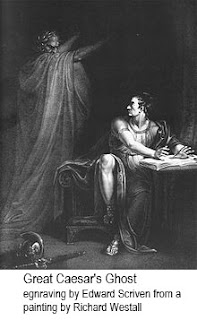Timon of Athens by William Shakespeare
Timon of Athens is a tragedy by Shakespeare, probably co-written with Thomas Middleton, very early 17thCentury. It is about a fictional Athenian during Hellenistic Greece. The title character may have been influenced by, though not entirely based on, Greek philosopher Timon of Phlius.
Timon is a generous and gregarious fellow – generous to a fault. He has many friends and flatterers who receive benefit from his generosity. Timon’s faithful steward, Flavius, tries to warn him of his wastefulness, but Timon is too deluded by flatterers to listen.
Of course, there is a limit to Timon’s resources and his generosity leads to ruin. He rebuffs Flavius for not warning him, but is not overly worried. He is confident his many friends will assist HIM, now that HE is in need. He chides Flavius for doubting.
And, in some sort, these wants of mine are crown’d
That I account them blessings for by these
Shall I try friends: you shall perceive how you
Mistake my fortunes; I am wealthy in my friends
But of course, none are so faithful.
 Timon’s lands are sold, he renounces society (pictured) and flees to live in a cave and dine on roots. He discovers a hidden treasure of gold, which he uses to hire mercenaries to destroy Athens. I’ll spare the rest.
Timon’s lands are sold, he renounces society (pictured) and flees to live in a cave and dine on roots. He discovers a hidden treasure of gold, which he uses to hire mercenaries to destroy Athens. I’ll spare the rest.
This is rightly called a tragedy, not because Timon is ruined financially, but because his soul is ruined. He becomes a complete and hopeless misanthrope. He offers this prayer…
And grant, as Timon grows, his hate may grow
To the whole race of mankind, high and low!
Throughout the play all the characters, but especially Timon’s false friends, are ridiculed by cynical Apemantus, who sees through their duplicity. And although Apemantus is somewhat sympathetic to Timon’s disillusionment and need, Timon offers even him contempt, which is then returned in a sad, and yet amusing exchange of insults
T: I had rather be a beggar’s dog than Apemantus
A: Thou art the cap of all the fools alive
T: Would thou wert clean enough to spit on
A: A plague on thee, thou art too bad to curse
T: All villains that do stand by thee are pure
A: There is no leprosy but what thou speak’st
T: If I name thee – I’ll beat thee, but I should infect my hands
A: I would my tongue could rot them off
T: Away, thou issue of a mangy dog!
Choler does kill me that thou art alive;
I swoon to see thee
A: Would thou wouldst burst
T: Away, thou tedious rogue! I am sorry I shall lose a stone
[throws a stone at Apemantus]
A: Beast!
T: Slave!
A: Toad!
T: Rogue, rogue, rogue!
The play is a sobering indictment on humanity. And while I am certain that not all friends are false, there is a danger in wealth that makes it hard to distinguish between the true and false. I’m certain there are many instant millionaires (lottery winners, professional athletes, etc.) who could relate to this interesting play. I can’t say I loved it. I’m not surprised it is not one of Shakespeare’s more popular plays.
I read this for the 2019 Year of Shakespeare Challenge.
.




